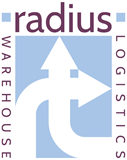Even though we’ve stepped out of 2020, the demands incited from the COVID-19 pandemic certainly haven’t gone away. And the sea freight industry, along with those involved in international haulage, is perhaps one of the most impacted. The fear of transmission, increased demand, and increased prices are all putting extreme pressures on the businesses at sea in a significant way. In this blog, we’ll look at the reasons why the sea freight industry is still struggling to keep up with demand.
Increase Costs
According to the Freightos Baltic Index, prices for shipping a container of goods have increased 3-fold over the past year. By November 2020, this had already gone up by 80%. The research available fully attributes this to the pandemic, with people refocusing their spending habits. Where once, entertainment, going out, and leisure activities took the bulk of people’s expendable income, it is now being redirected towards online shopping. An increase in demand has put the supply at an all-time restraint, particularly for international shipping and perhaps even more significantly, for shipping out of Chinese factories.
Container Bottlenecks
In particular, shipping containers themselves are largely produced in China. Reports state that the country delivered 2.6 million 20-foot containers, of which more than 70% were manufactured in the second part of 2020 to try and keep up with demand. These are being bottlenecked at the UK’s deep sea ports which, combined with the pandemic and our exit from the EU, has made the smooth movement of freight even more challenging. Once BBC article noted container prices of over £10,000 in contrast to £1,600 in November – the financial demand is crippling.
Chinese New Year
An additional challenge has risen from the annual Chinese New Year Holiday. Traditionally, factories shut down during these 2 weeks. There was hope that this would give the UK ports time to get through the backlog of ships and imported goods. However, cases of coronavirus are continuing to rise in China once again, which is causing this normal holiday to be exchanged with staggered factory dates.
The sea freight industry is one of the oldest and most relied-upon in the world. This increased demand is putting strain on it from all angles – from manufacturers and importers through to ship handlers and ports. The team here at Radius Warehouse & Logistics will stay on top of all up-coming developments, continuing to support our clients to make international freight movement as smooth as possible. Get in contact today.



